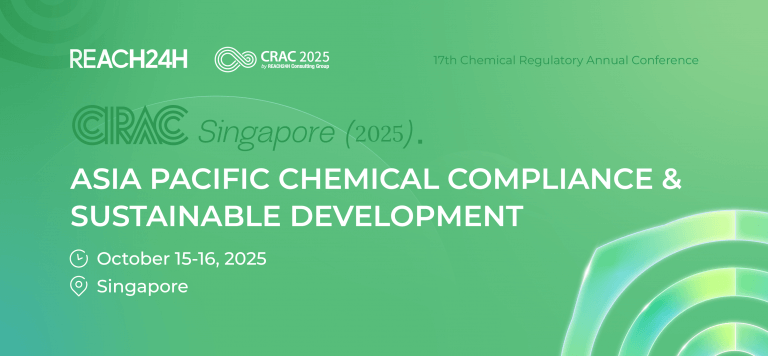The Draft Environmental Code of the People's Republic of China (referred to as the "Code") has been released for public consultation on the National People's Congress of China Website, with the consultation period ending on June 13. This landmark legislation marks a significant step in China's environmental governance.
What Is the Environmental Code of China?
As the second law in China to be titled a "Code", the Environmental Code represents a major milestone in China's legislative history. It is a comprehensive framework consisting of five sections:
General Provisions
Pollution Prevention and Control
Ecological Protection
Green and Low-Carbon Development
Legal Liability and Supplementary Provisions
The Code includes 1,188 provisions and approximately 160,000 words, consolidating and replacing ten existing environmental laws, including the Environmental Protection Law, Marine Environmental Protection Law, and laws on air, water, soil, and noise pollution.
Key Update: Environmental Management Registration for New Chemical Substances
One of the most notable updates in the Code is the formal establishment of the Environmental Management Registration System for New Chemical Substances. This system addresses a long-standing gap in China's regulatory framework, where previous ministerial orders lacked the backing of higher-level laws, resulting in limited penalties and compliance loopholes. The new provisions mandate that the production, import, and use of new chemical substances must be conducted under a certificate-based compliance system. Enterprises that fail to get certificates or implement necessary measures will face severe penalties, including:
Fines of up to 2 million RMB (approximately 280,000 USD)
Potential orders to suspend operations or even permanently shut down
Strengthened Penalties for Non-Compliance
The Code significantly increases the financial and operational risks for enterprises that neglect compliance. This is expected to deter the "risk-taking mindset" previously observed among some businesses. The enhanced penalties aim to ensure stricter adherence to environmental regulations.
Green and Low-Carbon Development Officially Integrated into National Law
For the first time, green and low-carbon development is written into China’s national legislation. The Code elevates green transition to a national priority and specifically calls on key industries—such as chemicals, petrochemicals, building materials, and textiles/dyeing—to accelerate their green and low-carbon transformation. It promotes the widespread adoption of energy-saving, emission-reducing, and cleaner production technologies, alongside continuous improvement in energy efficiency and carbon emission standards. The Code also encourages: enterprises to actively pursue green technology innovation and develop green manufacturing systems; the establishment and continual improvement of green product standards, certifications, and labeling systems to make green attributes a core competitive advantage; and government agencies and consumers to prioritize green procurement and green consumption, thereby driving market demand for environmentally friendly products. Additionally, China will further develop green finance mechanisms by setting up green industry investment funds to attract social capital into green projects. These systemic efforts will create a clearer, stronger, and more sustainable policy environment for green chemistry and green industrial upgrading.
Green Chemistry Drives Substitution Revolution and Clean Production Upgrade
The Code introduces the concept of “green chemistry substitutions” into the national legal framework for the first time, reflecting China’s increasing commitment to cleaner production and green chemistry. It requires that enterprises prioritize non-toxic, harmless, or low-toxicity raw materials when upgrading technologies, replacing hazardous substances at the source to reduce environmental and health risks. Enterprises that continue to use toxic or hazardous substances or release such substances during production will be subject to mandatory cleaner production audits. Companies that fail to conduct these audits, falsify audit reports, or fail to submit audit results truthfully may face fines of up to 500,000 RMB (approximately 70,000 USD). This represents a solid legal foundation for green chemical substitutions and marks a decisive step in China’s drive toward green, sustainable manufacturing.
Ministry of Ecology and Environment's Commitment to Implementation
During a press conference held on May 27, Zhao Ke, Director-General of the Department of Regulations and Standards, emphasized the Ministry's commitment to improving the legal framework for environmental risk management. Zhao highlighted plans to:
Conduct extensive public consultations
Expedite research and drafting of regulatory proposals
Submit proposals to the State Council for review
These efforts aim to create a robust legislative foundation for managing chemical substances and mitigating environmental risks.
What Does This Mean for Enterprises?
The implementation of the Environmental Code will significantly strengthen China's regulatory framework for chemical management. Enterprises must prioritize compliance to avoid severe penalties, as the Code marks not only a milestone in environmental legislation but also a powerful institutional driver for the green transformation of the chemical industry. The concept of green chemistry is now advancing from scientific research to formal legislation, shifting from voluntary adoption to regulatory enforcement. REACH24H Consulting Group will continue to closely follow the legislative progress of the Environmental Code, providing timely policy interpretation, compliance assessment, and green substitution solutions to support enterprises in achieving low-risk, sustainable development. If you have relevant questions, please feel free to contact us at customer@reach24h.com.





